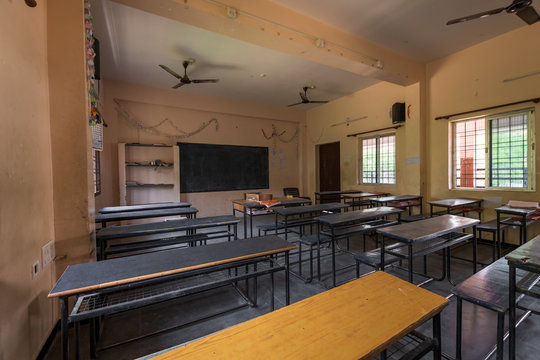
The first time I inferred the deeply complicated relationship between a girl’s skirt length and her character, I was a 12-year-old girl in school. During one morning assembly, a teacher picked a select few girls for a lecture on why their skirt length was shameful.

I was one of those select few girls. Otherwise known for being an obedient one, it was an anomaly for me to be especially segregated among ‘uniform defaulters‘. For your information, a uniform defaulter is a special category of student who misses the perfect mark because, in school, you have to show up exactly how they expect you to.
If you’re a boy sporting long hair, that’s a problem. If you’re a girl who forgot to tie that one ribbon over your tightly bound and oiled hair, that’s not acceptable either. Your shoes should be crystal clean without a tiny speck of dust. Your uniform should be ironed without a hint of crease. But, for girls, it is our skirt lengths that became the highest matter of concern on the first day of our VI standard. What the problem was, however, was never clearly conveyed. And so I imagined.
Sexism isn’t something you’re born with. It’s acquired. Often, schools become primary learning centers for such acquired sexism. A friend of mine from college once revealed to me how she was declared a slut by her teachers in Grade VIII because she dared maintain her friendship with her childhood best friend, her classmate, a boy. This honour was singularly reserved for her and not her friend because apparently, boys do what boys please, and it’s a girl’s responsibility to preserve her character.
Roughly, a child spends over 14 years of their life growing up in school, and schools become the very microcosm of society. Foundational values are established in these formative years, where parents also play an imperative role. The two, in collaboration, frame a child’s worldview, which (more often than not) has to be unlearned as an adult, primarily because it is flawed.
That unlearning isn’t easy either. It takes up time. You see your adult relationships suffer as a result and you feel disillusioned with life, with people. Now, you have to dismantle the flawed ideals and rebuild a completely new value system. One that is evolved, one that is based on acceptance and tolerance.
It was not for no reason that the meaning of our skirt lengths became so drastically twisted from our last day in grade V to our first day in grade VI. Something had changed, and it was not our height. It was not even puberty. At the time, most of us were still away from periods. We looked and felt practically the same. We were ‘conventionally’ still kids, but everything was suddenly different.
Now that I think of it, the change was in the way the world saw us. We were reminded that we were growing up and, because of this, we had to act like good girls. But who are these good girls? Well, they sit a certain way. They keep their skirts long and their nails short. They grow their hair but keep them tied. They are opinionated but know when to stop talking. They are friendly but avoid being too friendly, especially with boys.
You see, there is a set of prescribed codes of conduct for good girls. From the moment you’re told what good girls are like, any or every transgression becomes a sign of bad character. You’re always under surveillance. Teachers will patrol everything you do, and it’s not like there’s any privacy at home either. If you’re not good, you’re bad. And if something bad were to happen to you, it’s only because you didn’t listen and behave properly in the first place. Everything, therefore, becomes your fault. This new state of being then meets puberty, and we all remember how overwhelmingly confusing those adolescent years were. Everybody out there exists to tell you who, how, and what to be. What even is a girl’s life if it’s not dictated by those around her, right? A substantial part of your formative years becomes an act of taking permission for basic freedom, and for some people, this continues till adulthood.
It is then some internalise the sexism and become the good girl’s schools so desperately desire. Others become the misfits, the rebels whose mere existence is labeled a sham. In the end, everybody becomes the victim. The victim of this world that would rather curb girls of their free will move away from sexist constructs of our society.